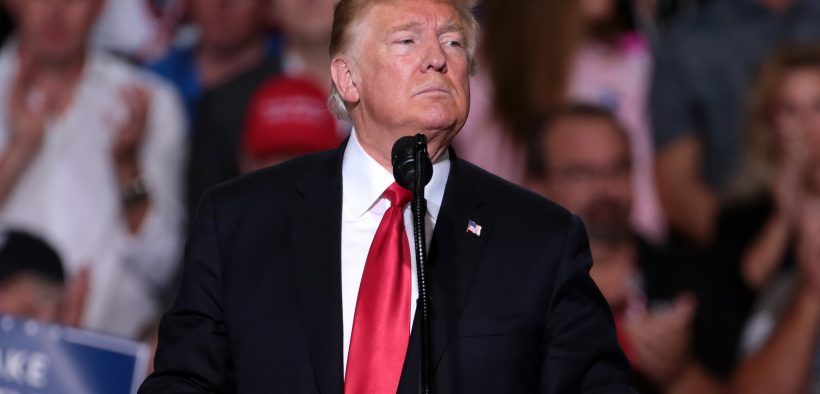Trump Announces Plan to Add to Controversial Travel Ban List

The seven countries that would reportedly be included in the expanded travel ban are Belarus, Eritrea, Kyrgyzstan, Myanmar, Nigeria, Sudan and Tanzania.
President Donald Trump announced at the World Economic Forum that his administration is planning to expand his controversial ‘travel ban’ which targeted Muslim-majority countries in 2018.
The Wall Street Journal first reported the White House’s plans which include adding seven countries to a group of countries that face travel restrictions. The seven countries are Belarus, Eritrea, Kyrgyzstan, Myanmar, Nigeria, Sudan and Tanzania.
It is currently unknown how restrictive the new change will be for immigrants, travelers and visa holders from these countries, and the list is not final. The White House clarified it is likely to announce a finalized list on Monday.
After the leak was reported by the media, Trump said at the World Economic Forum in Davos, Switzerland, “we’re adding a couple of countries. We have to be safe. Our country has to be safe. You see what’s going on in the world. Our country has to be safe.”
After many legal battles, Trump’s original travel ban has been watered down, so any new additions are unlikely to face a blanket ban, however, it will make life more difficult for many immigrants, tourists and American citizens from these countries. And, it sends a clear message to the world that Trump’s strict immigration policies will continue.
Nigeria?
One of the biggest surprises on the leaked potential list is Nigeria. According to the Migration Policy Institute, Nigeria is the largest source of immigration to the United States from Africa, and 376,000 Nigerian immigrants live in the United States.
Nigeria is also an ally of the United States and the largest economy in Africa. Prior to Nigerian President Muhammadu Buhari’s 2018 visit to the White House, he detailed the important relationship between Nigeria and America in Newsweek, including the fight against the terrorist group Boko Haram.
The potential inclusion of Nigeria along with the other six countries raises eyebrows about the White House’s intentions as President Trump revs up for reelection in 2020.
The initial travel ban, and additions to it, has been held by the Trump White House as one of its hallmark achievements.
When asked about the latest expansion White House Spokesman Hogan Gidley held up the travel ban as a success and said, “if a country wants to fully participate in U.S. immigration programs, they should also comply with all security and counterterrorism measures.”
This is likely a jab at countries overstaying their visas as most other criticisms of the additional countries do not fall under these categories.
As reported in the Wall Street Journal, the total amount of visa holders who overstayed their visas is 1.9%, but 15% of Nigerians overstayed their visas. Eritrea is also on the reported expanded travel ban list, and it has an overstay rate of 24%.
While Nigerians and visa holders from other countries may overstay their visas, the timing of the announcement and its setting as Trump attends an international diplomatic meeting reiterates the White House’s intention to skip many diplomatic niceties in favor of isolationism.
World Economic Forum
While the global elites gathered at the World Economic Forum to discuss sustainability, likely to assuage growing climate activism, Trump had other ideas making his announcement on the travel ban to reporters at the diplomatic event.
Clearly, the White House has little interest in climate change, U.S. Treasury Secretary Steven Mnuchin responded to teenage climate activist Greta Thunberg’s call to act on climate change with, “is she the chief economist? … After she goes and studies economics in college, she can come back and explain that to us.”
But while Trump may never have been willing to engage on the topic of climate change, the setting for his announcement of an expanded travel ban did have symbolic significance. At a forum where many of the global elite chose to backslap and take photo-ops, Trump chose to add fuel to the fire of many diplomatic relationships.
With a current list of heavily restricted travel for citizens of Iran, Libya, Somalia, Syria, Yemen, Venezuela and North Korea, and another seven potentially on the way, it begs the question of how long the list will swell to before the United States runs out of enemies to add.









